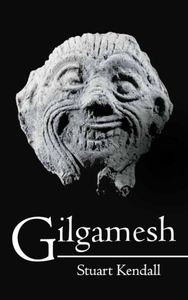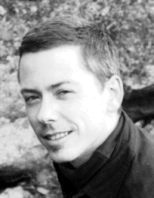Relating to CC101’s study of the Epic of Gilgamesh is an interview by Biblioklept with Stuart Kendall, a former Core professor whose latest translation is a telling of Gilgamesh that casts the ancient epic poem in modernist poetry. Here is a sample from the interview:
Biblioklept: Why Gilgamesh?
Stuart Kendall: Gilgamesh is the oldest extended tale that has come down to us and it speaks to us from a pivotal moment in the history of human experience. It is also a particularly rich text, as rich in its depths, ranging back in time prior to its composition, as it is in its reach, remaining relevant to our own drama.Gilgamesh dates to the Bronze Age but the roots of the story, the bones of it, reflect notions about human experience that may stretch back beyond the Neolithic era to the Paleolithic. The text, to my understanding, contains layer upon layer of cultural renewal and reinterpretation. These layers of renewal are reflected in the extended life of the text beyond Gilgamesh into the related texts of the ancient world, like the Hebrew scriptures, and beyond those writings into the fundamental attitudes and ideas of Western civilization, many of which have been profoundly wrongheaded, to put the matter lightly.
From another angle, in part due to the age of the text, Gilgamesh reaches beyond relevance to Western civilization into world religious history through motifs related to shamanism, a practice that many historians of religion suggest may be at the origin of every religious tradition.
Finally, Gilgamesh is perhaps first and foremost a document of ancient Mesopotamia, ancient Iraq. It is a text that can be traced into and through the fundamentally Judaic traditions of both Christianity and Islam. Our lifetimes have been scarred by the clash of these related worlds. An encounter withGilgamesh cannot heal the breach caused by the tragic hubris and shortsightedness of some American politicians but it certainly can serve as one part of an on-going discussion about commonalities and differences in human experience bound as we are by time and place.
I hope it is clear that I don’t think that Gilgamesh contains a positive record of something that we share, some universally valid message. Rather I view it as a product of a specific time and place, a distinct product of the process of history. But as such we can see the deeper past through it, trace our traditions to it, and measure ourselves against it in, I think, valuable ways.
…
For the full interview, visit bit.ly/wSu16B.
An item of interest is an interview with Kendall during his time as a Core Professor:
Q: What do you most enjoy about teaching Core?
I most enjoy those moments when we discover something new in the classroom. Wherein we begin discussing things that we know and we push against them until to we get to some place. . . a moment of suspense in the classroom. . . I think that’s really exciting.Q: What book would you say influenced you the most when you were young?
I read the biography of Jim Morrison, No One Here Gets Out Alive, when I was 13, and I decided to read everything that was referred to in the book. So I read Nietzsche, Artaud…. I often do more or less the same thing today. I look at the bibliography of a book that I like and try to read everything on it.Q: Tell me about your undergrad years.
I went to the Florida State University, not too interesting. My degree was in philosophy, though I would not describe myself as a philosopher in any way. I dropped out of school for two years in the middle. I moved to San Francisco because I wanted to read more and to refocus my interests. I moved to San Francisco because Jack Kerouac had lived there, because I’d been there before, and because it’s a beautiful city. When I started college, I majored in political science, intending to become a political journalist. Later I became more interested in larger philosophical questions. I went back to school and only took classes for which I had already read the assigned books. This in mind, I chose courses more or less randomly. After two years I knew I had to be approaching graduation in some field. I found that I had taken enough classes to graduate with a philosophy degree.Q: What are you interested in, or passionate about?
I am interested in artifice, as you know. . . the fake. . . I love the moment when truth becomes fiction and fiction becomes reality. But I suppose I am obsessive and curious about many things. I try to be passionate about living well. I am interested in things like good cheese, wine, and food. Getting the most out of everything. I want books to push me and show me different possibilities for life and thought. I tend to become obsessed with an author and read everything by that author and everything by all their friends; this as a way to explore the way that language and ideas can be used to provoke experience and thought.Q: Do you have any words of advice for Core students?
Don’t ever be bored.


